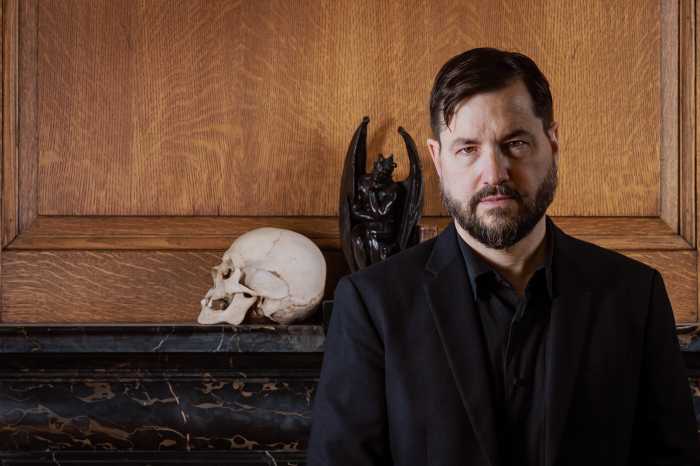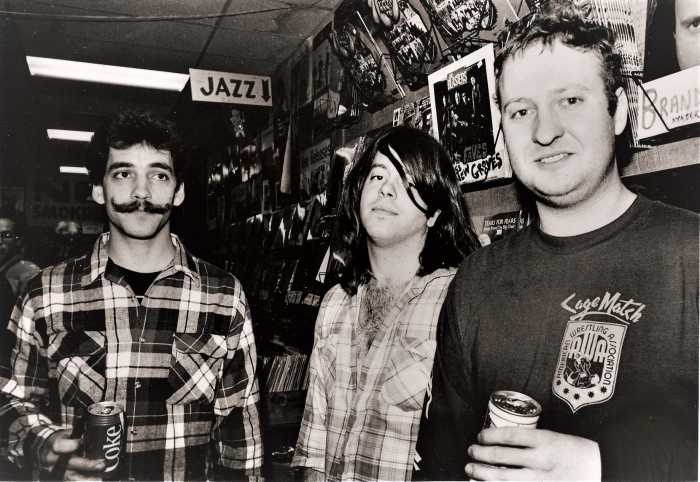In Leonard Bernstein's clever one-act opera “Trouble in Tahiti,” the heroine describes a gaudy movie musical as so much “Technicolor twaddle.”
By By: JAMES JORDEN
In Leonard Bernstein's clever one-act opera “Trouble in Tahiti,” the heroine describes a gaudy movie musical as so much “Technicolor twaddle.” If Tan Dun's new work “The First Emperor” (heard at the Metropolitan Opera on December 29) can hardly be dismissed as twaddle, it never attains the epic status to which it aspires.
Curiously, some of “The First Emperor” sounds like it could have been written by Bernstein himself. A first act solo for the title character (Plácido Domingo) echoes the American composer's jazzy soundtrack for “On the Waterfront.” Yearning brass fanfares and whole-tone woodwind chords recall Bernstein's contemporary Aaron Copland; and the musical keystone of the opera, the slaves' anthem, evokes the world-weary post-romantic Benjamin Britten.
These conservative passages contrast with what we might consider stereotypically Chinese music-tinkling pentatonic melodies, exotic plucked instruments like the zheng, and a good deal of noisy percussion. The vocal lines, though written idiomatically for classically trained singers, tend to meander, and so the opera always seems just on the verge of taking wing-without ever quite achieving liftoff.
The prosaic libretto, by the composer in collaboration with screenwriter He Jin, is suggested by the career of China's “First Emperor” Qin Shi Huang. His reign was hardly uneventful-he built the Great Wall, for example-but the action of the opera focuses on the ruler's micromanagement of an already consolidated nation. To those of us who have grown up on “Don Carlos,” “Boris Godunov,” and the “Ring,” it's hard to work up much feeling for a monarch whose most nagging concern is standardizing the national system of weights and measures.
Another of the Emperor's bullet points is the commissioning of a new national anthem from his childhood friend Gao Jianli (tenor Paul Groves). The composer at first refuses to cooperate with the brutal despot, but then he falls in love with the beautiful but lame Princess Yueyang. Alas, she is already engaged to the Emperor's sidekick General Wang. This slim plot resolves early in the evening, leaving a second act consisting of love duets, slave choruses, processions, and “special ghost star” appearances by recently deceased characters.
Domingo's vigorous singing belied his more than four decades on the operatic stage-this is an artist who shows few signs of slowing down in his mid-60s. The most challenging vocal music in the opera was assigned to Elizabeth Futral as the disabled princess. Her silvery soprano leaped and darted seductively in coloratura passages and she was most moving in the sustained lyrical lines of her final scene. I still think the voice of Groves is all smoke and mirrors, but he made even his most vehement outbursts sound musical.
The estimable mezzo-sopranos Suzanne Mentzer and Michelle DeYoung were pretty much wasted in the irrelevant roles of the nagging Queen Mother and a risibly over-the-top Shaman, respectively. The handsome oratorio-style production, credited to film director Zhang Yimou, was reportedly completed by an ad hoc committee including the composer and Met General Manager Peter Gelb.
The distraction of getting “The First Emperor” up and running may explain why the concurrent revival of “I Puritani” (heard December 30) was thrown on the stage with so little care. The physical production at least has the excuse of being three decades old, but Patrick Summers' conducting creaked and drooped just as badly the ancient backdrops. Tenor Gregory Kunde (Arturo) sounded pretty frayed as well, but he sang with authority and a seasoned command of bel canto style.
The raison d'être of this revival, Anna Netrebko, brings to the role of Elvira a haunting lyric soprano, innate glamour, and a strong instinct for the stage. What she lacks is technical polish, specifically the ability to articulate quick coloratura passages. This serious weakness was likely exacerbated by insufficient preparation. “Puritani” is her fourth new opera role this year.
As such, Netrebko's Elvira cannot be called an unqualified success; but there is more to opera than vocal technique. Netrebko delivered a performance that won both loud ovations and the far more rare accolade of rapt, silent attention from the Met audience. Her graceful stage presence and unforced pathos helped immensely, but what really made the evening work was the soprano's ability to shape the long Bellini phrases into expressive paragraphs. Anna Netrebko may or may not keep “Puritani” in her repertoire, but whatever she sings will be well worth hearing.
James Jorden is the producer of the podcast “Unnatural Acts of Opera” at Parterre


































